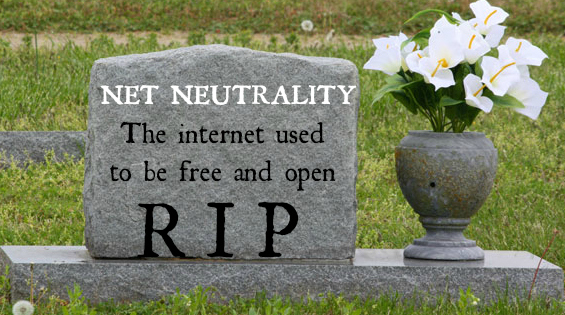Ajit Pai has been a busy FCC Commissioner lately. He has been on various talk shows warning listeners about proposed regulations for the Internet. While this may sound like an insignificant issue created by government bureaucrats, pay attention for another minute because it will affect you.
The FCC will vote later this week on Net Neutrality rules that the public hasn’t even seen yet. I can understand why your eyes might glaze over when you hear about such rules. That is why this FCC Commissioner has taken to the airwaves to warn people about what will happen.
Perhaps the best way to sum up his argument is to say that these Net Neutrality rules will essentially be “Obamacare for the Internet.” In one of his interviews, he remarked, “I’ve heard from a lot of people who are amazed at how the entire process that this issues has progressed on, and the substance of it mimics Obamacare that Washington bureaucracy would keep this plan in the dark, wouldn’t release it until after it was voted on, and you have the FCC, or any federal agency essentially micromanaging the private sector.”
If you liked the fact that the Internet was free from so much government control, you will not like these rules. He argues that we are moving to the time with “government control of virtually every aspect of the Internet.” And he estimates it will add at least $11 billion in new taxes on Internet access.
Apparently, the FCC will vote to reclassify broadband as a common carrier service. That will allow the FCC and other governmental agencies to use rate regulations that were imposed in previous centuries on railroad and telephone monopolies. Of course, there is no such monopoly among Internet service providers (ISPs). Ajit Pai says the FCC is “adopting a solution that won’t work to a problem that doesn’t exist using legal authority we don’t have.”
I hope by now you can see that these FCC rules are a bigger concern than you might have first thought. We need to express our concerns to Congress, which has oversight over the FCC.
 Listen Online
Listen Online Watch Online
Watch Online Find a Station in Your Area
Find a Station in Your Area











 Listen Now
Listen Now Watch Online
Watch Online
